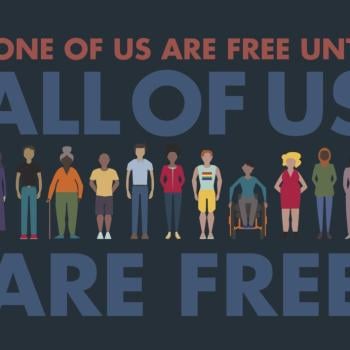Editor's Note: The first part of Joseph Gorra's interview with Robert Sirico may be found here: "Is Capitalism Immoral?" Below is the second installment in the interview.
One of the distinctive elements of your book—indeed, of your leadership and work through the Acton Institute—is that you see quintessential questions of economics and politics as also questions of theology and ethics. But within Western societies today there appears to be a kind of fact/value dichotomy that operates as an assumption in much of our discourse, where questions of 'economics' (and the sciences in general) are in the category of knowledge and facts and therefore tend to trump questions of 'theology,' which are not considered categories of knowledge but only 'private values and religious beliefs.' How do you respond to this dichotomist thinking?
This is certainly the case, despite the fact that economics, as an intellectual discipline, originates in theology and ethical concerns, dating back to the Scholastic theologians of Salamanca, or even Adam Smith (who wrote Theory of Moral Sentiments prior to Wealth of Nations).
The dichotomous fact/value assumption fails to see that the accumulation of facts is necessary and fascinating, but ultimately unsatisfying; were it true we would simply be able to Google our way to happiness. No, it is the meaning of the facts, not the facts themselves that satisfies our hunger for truth. The modern resistance to metaphysical and normative questions—especially manifest in the use of values-talk (which is inherently subjectivist) in the place of virtues and vices (which assume moral objectivity)—results in a reluctance to probe the "ought" encased in the "is" of our existence and shows itself in the general philosophical resistance to the truth claims that can be discerned by right reason in general. The opposite of a fact is not a value. The opposite of a fact is a false proposition.
The dichotomous fact/value assumption also stunts our comprehension of what is true.
It's also true that some economists become hegemonic in thinking that the whole of truth is seen through their particular lens of expertise, rather than appreciating the immense complexity of humanity and situating their part of the truth within the broader truth of who the human person is. But that's not just a problem for some economists—scientism infects almost every discipline that has a strong empirical element.
It would be humorous, if it were not tragic, when one becomes so blinded by the subjectivism of such relativism that they accuse others of what they themselves are infected with.
What I am trying to do is broaden our comprehension of the truth that permeates everything—in the case of my book, how the economic can be seen to emerge from a reflection of human nature and empower us to do the good intentionally.
Sometimes the effect of that misunderstanding manifests itself in the claim, "capitalism promotes greed," which seems to have moved from being a cliché to being an unquestionable fact for many. But to the contrary, you seem to say that a genuinely free society and free economy can promote charity, selflessness, kindness.
In the first place, greed is defined as inordinate desire, and it is not, in moral theology, limited to material things. It can involve status, ego, sexuality, and the like. Nor does the market hold a monopoly on the expression of greed. We can see it in families, in the church, and certainly in government. What a free society does is dissipate power, so at the very least, greed has to compete with virtue.
A free economy is also productive and this means a great prospect of prosperity, thus employing people, offering goods and services at lower prices (thus raising living standards), and encouraging a superfluity of wealth, which in turn enables charitable giving. The advances in medicine, technology, and other things we take for granted have resulted in lower poverty rates, longevity, and general prosperity.
Moreover, in an economy generally free of political manipulation, even people in search of nothing more than wealth can only obtain this by producing goods and services other people value. Such greedy people will no doubt stand in judgment before God for the inordinate lifestyles, but at least their greed has served some material good for people. Though he does not use theological language and was most likely a Deist, Adam Smith makes a very similar point in the Wealth of Nations.




